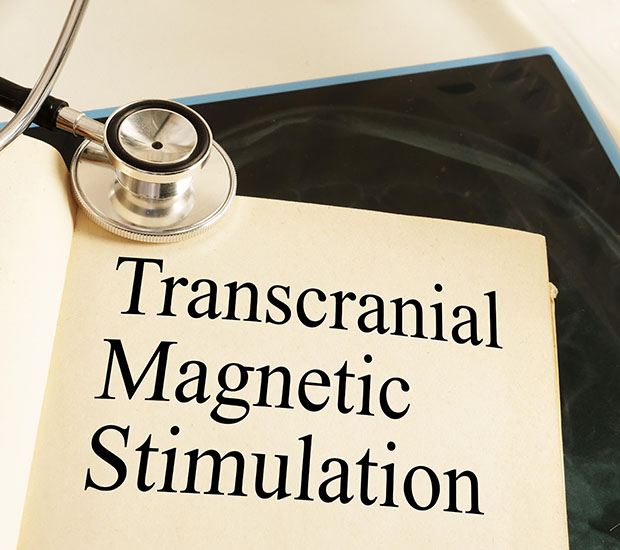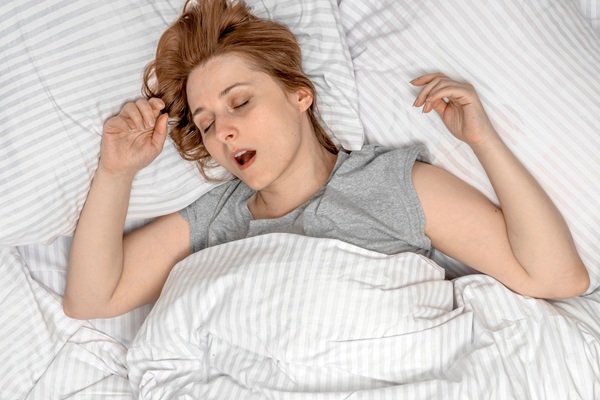Transcranial Magnetic Stimulation (TMS)New York, NY
Transcranial magnetic stimulation (TMS) is a non-invasive alternative treatment for mental disorders like anxiety, obsessive-compulsive disorder, and depression. The treatment involves delivering magnetic pulses into a person's brain to increase activity in areas with low activity.
Mental health disorders can significantly impact a person's quality of life. They often take the joy out of the things people enjoy, which often leads to them withdrawing from social activities. Not getting appropriate treatment for these disorders only allows them to worsen. Psychiatrists treat mental health issues like depression, anxiety, and obsessive-compulsive disorder with treatments like psychotherapy, medication, and TMS therapy.
TMS therapy is mainly performed to treat depression, and the Food and Drug Administration approves it. It is often recommended for patients with treatment-resistant depression. There is also evidence TMS helps with several other mental health issues.
Transcranial magnetic stimulation involves repeatedly sending magnetic waves into a patient's brain, so the treatment is sometimes known as repetitive transcranial magnetic stimulation (rTMS).
Psychiatric Evaluation for TMS
Psychiatrists or similarly qualified healthcare professionals typically perform TMS treatments. A psychiatrist is a doctor who specializes in diagnosing, treating, and managing mental health issues. They are qualified to prescribe psychotropic drugs that help to improve the brain chemistry of people with mental health issues.
Treatment for psychological issues typically starts with the psychiatrist evaluating the patient to diagnose the problem. Blood tests might be ordered to rule out existing health issues as the underlying cause.
Psychiatrists typically stick to psychotherapy and medication as the first line of defense against mental health issues. Either option can be used as a standalone treatment, but combining them often leads to optimal results.
However, some patients do not notice a significant reduction in their symptoms after starting conventional treatments like psychotherapy and medication. Alternative treatments like transcranial magnetic stimulation are often recommended at that point.
TMS Treatment Process
Transcranial magnetic stimulation is typically performed as an outpatient procedure. A typical treatment lasts anywhere between 30 to 60 minutes. The first session is often the longest since the patient's threshold is determined during their first appointment. The psychiatrist does that by gradually increasing the magnetic waves sent into the patient's brain until it forces their fingers to twitch. This sets the bar for the intensity of magnetic pulses used for the treatment.
TMS therapy is a non-invasive procedure, so sedatives or anesthetics are unnecessary. Patients do not feel any pain as magnetic waves are sent to their prefrontal cortex. The most they feel are light tapping sensations on their forehead as the magnetic waves penetrate their skull.
Here is what patients should expect during their TMS treatment sessions:
- The patient is given earplugs to minimize the clicking sounds created by the magnetic coil placed on the patient's forehead. The noise made by the coil is similar to the sounds made by MRI machines. The patient sits upright in a comfortable chair during the treatment
- The psychiatrist measures the patient's head to determine the best areas to place the coil. Other measurements might be taken to personalize the patient's treatment
- The electromagnetic coil is placed on the patient's head to start the treatment. The patient might feel knocking or tapping sensations on their head. The treatment can last up to 60 minutes, and the patient should be able to drive themselves back home
Addressing mental health issues with TMS treatment often involves getting up to five sessions per week for up to six weeks.
Depression Treatment
TMS therapy is primarily used to address treatment-resistant depression. It is used as an alternative when talk therapy and medication have proven ineffective. According to BMC Psychiatry, about 30% of people with depression do not notice a significant reduction in their symptoms after starting psychotherapy or antidepressants. TMS therapy provides an alternative treatment that has already been proven to be an effective way to reduce the symptoms of depression.
Major depressive disorder is associated with reduced activity in the prefrontal cortex. This is the part of the brain that regulates symptoms of depression like low mood and energy. TMS therapy helps patients with depression by helping to stimulate nerve cells in the prefrontal cortex and increasing neuroactivity in the region.
Other mental health issues that can be treated with transcranial magnetic stimulation include:
- Obsessive-compulsive disorder
- Anxiety
- Post-traumatic stress disorder (PTSD)
- Stroke rehab
- Schizophrenia
- Parkinson's disease
- Alzheimer's disease
- Chronic pain
- Nicotine addiction
- Multiple sclerosis
Psychiatrist
Psychiatrists are doctors who treat patients with mental health disorders. Treatment starts with the psychiatrist carefully examining the patient to pinpoint the cause of the patient's symptoms.
Some of the symptoms that indicate a person might have a mental health disorder include:
- Reduced ability to concentrate or confused thoughts
- Feeling down or sad
- Extreme mood changes between high and low
- Withdrawal from family, friends, and activities
- Low energy or extreme fatigue
- Excessive guilt, worry, or fear
- Hallucinations, paranoia, or detachment from reality
- Trouble relating and understanding people and things
- Substance abuse problems
- Changes to a person's sex drive
- Inability to cope with stress or daily problems
- Suicidal thoughts
- Changes in eating patterns
- Excessive hostility, anger, or violence
- Unexplainable weight loss or gain
- Obsessive thought patterns or behaviors
Some of the ways psychiatrists go about diagnosing mental health issues include:
- A physical examination. Psychiatrists use this to rule out physical disorders that could be responsible for the patient's symptoms
- Lab tests. Psychiatrists use a wide range of lab tests to diagnose mental health disorders. Some of the tests that might be ordered include blood tests, thyroid tests, and drug screens
- Psychological evaluation. This often includes the psychiatrist talking to the patient about their behavior patterns, thoughts, and symptoms. Patients might be asked to fill out questionnaires to create a clearer picture of their symptoms
TMS therapy can provide the relief you seek
Dealing with a mental health issue? Our psychiatrist can provide relief from your symptoms and show you effective ways to cope with your condition. Give us a call or visit our New York clinic to set up an appointment today.
Request an appointment here: https://www.hopetmsofny.com or call Hope TMS and Neuropsychiatric Center at (646) 578-8152 for an appointment in our New York office.
Contact Us
Hope TMS and Neuropsychiatric Center is located at 57 W 57th St #808 New York, NY 10019.





